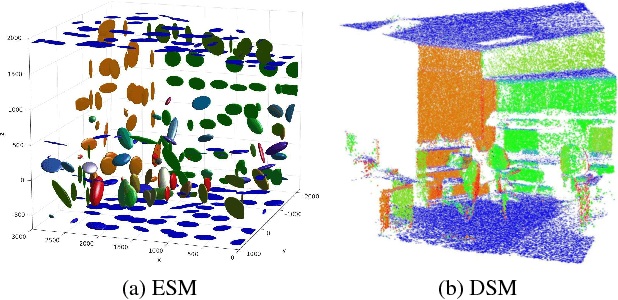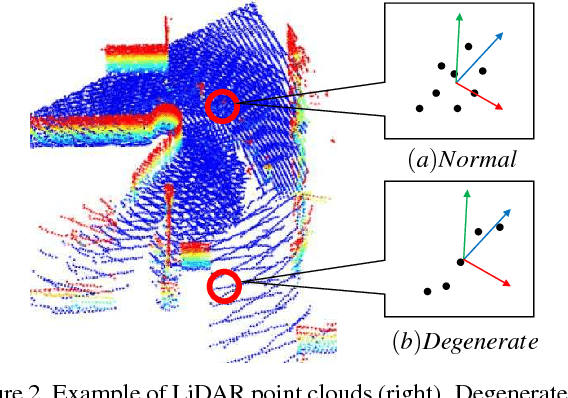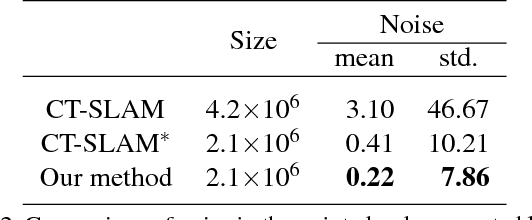Probabilistic Surfel Fusion for Dense LiDAR Mapping
Paper and Code
Sep 17, 2017



With the recent development of high-end LiDARs, more and more systems are able to continuously map the environment while moving and producing spatially redundant information. However, none of the previous approaches were able to effectively exploit this redundancy in a dense LiDAR mapping problem. In this paper, we present a new approach for dense LiDAR mapping using probabilistic surfel fusion. The proposed system is capable of reconstructing a high-quality dense surface element (surfel) map from spatially redundant multiple views. This is achieved by a proposed probabilistic surfel fusion along with a geometry considered data association. The proposed surfel data association method considers surface resolution as well as high measurement uncertainty along its beam direction which enables the mapping system to be able to control surface resolution without introducing spatial digitization. The proposed fusion method successfully suppresses the map noise level by considering measurement noise caused by laser beam incident angle and depth distance in a Bayesian filtering framework. Experimental results with simulated and real data for the dense surfel mapping prove the ability of the proposed method to accurately find the canonical form of the environment without further post-processing.
 Add to Chrome
Add to Chrome Add to Firefox
Add to Firefox Add to Edge
Add to Edge